#Tariffs
QOTD: How Would Tariffs Impact the Automotive Industry?
Once again, I am going to borrow today's question of the day from one of our earlier posts. I like to do this because it gives you all another forum to give your opinion about any given topic, and sometimes we can pick a particular question from a certain story and really dig in.
Today, Matt wrote about presidential candidate/former president Donald Trump's rhetoric involving tariffs and the automotive industry.
Why Did Trump Propose a 100-Percent Tariff on Mexican Auto Imports?
Earlier this week, Donald Trump suggested that he would impose a 100 percent tariff on select automobiles manufactured in Mexico — sending the industry into a minor tizzy.
Having done some digging into the matter, Trump only appears to be targeting Chinese vehicles being manufactured south of the border. The statement was made during the “Buckeye Values PAC” rally in Dayton, Ohio, and comes after Chinese automaker BYD announced plans to build a production facility in Mexico. While most of the resulting vehicles are assumed to be electric, BYD has stated its intention is not to sell them within the United States.
U.S. Asks Mexico to Investigate Stellantis' Labor Practices
The United States has requested that Mexico investigate worker rights violations that were alleged to have taken place at one of the parts factories owned by Stellantis. Officials are curious about what’s been happening at Teksid Hierro de Mexico, a facility located in the border state of Coahuila that’s responsible for manufacturing iron casings, in regard to unionization. According to U.S. officials, this is the fourth such complaint under the United States-Mexico-Canada Agreement (USMCA).
Having supplanted the North American Free Trade Agreement (NAFTA) signed into law by the Clinton administration in 1993, USMCA sought to rebalance trade laws the Trump administration believed had disadvantaged the United States. However, it also sought to advance worker protections in Mexico and give employees an easier pathway toward unionization.
Canada Joins Mexico in Trade Dispute Against United States
Mexican and Canadian officials have been dropping hints that they’re not all that enthusiastic about the United States-Mexico-Canada Agreement (USMCA) since before Enrique Peña Nieto, Donald Trump, and Justin Trudeau all sat down to sign it in 2018. But just getting to that point required months of formal negotiations that rarely looked to be all that productive.
Sadly, things don’t seem to have changed now that the USMCA is in full effect. Last week, Mexico requested a dispute settlement panel under the terms of the trade pact to help resolve disagreements about the surprisingly contentious automotive content stipulations that determine whether or not vehicles and parts will be slapped with tariffs. Under the previous North American Free Trade Agreement (NAFTA), 62.5 percent of the vehicle’s components had to be sourced from member nations to be considered tax-exempt. In an effort to spur localized production, USMCA increased that number to 75 and not everyone is thrilled with the updated content requirements with Mexico claiming it’s not even sure how to apply them. Canada now intends to formally sign onto Mexico’s complaint against the U.S. over their divergent interpretation of rules.
U.S. and Mexico Can't Come Together On Light Vehicle Rules
When the United States abandoned the North American Free Trade Agreement (NAFTA) to embrace the United States-Mexico-Canada Agreement (USMCA), it did so under the premise of crafting a better trade arrangement for itself. Established in 1994, NAFTA created a trilateral trade bloc that encouraged commerce between nations. But critics have accused it of encouraging the offshoring of U.S. jobs and dramatically suppressing wages — particularly within the automotive and manufacturing sectors.
Signed in 2018, and revised the following year, the USMCA was supposed to remedy those issues. But it’s been difficult to get all parties on board, especially when it comes to those persnickety rules of origin that stipulate how much of a vehicle’s hardware needs to be sourced from member nations.
Auto Lobbyists Attempt to Soften USMCA, Look to White House [UPDATED]
Lobbyists are reportedly seeking to soften the United States-Mexico-Canada Agreement (USMCA) now that there are some new faces in the White House. Signed in 2018, revised in 2019, and effective since 2020, the USMCA sought to restore North America’s manufacturing base with new content requirements and place the United States in a more favorable position than it held under the North American Free Trade Agreement. But industry groups are now claiming that interpretations from government agencies are gumming up the works, and accusing the U.S. of having a different interpretation from what the other nations had originally agreed upon.
“[The USCMA interpretation makes] meeting the … content provisions that much more difficult for everyone to achieve,” stated David Adams, president of Global Automakers of Canada.
Trump Offers Credits for Companies That Bring Back American Factory Jobs, Tariffs for the Rest
Keen to sweep as much attention away from the 2020 Democratic National Convention as possible, President Donald Trump campaigned in Old Forge, PA while Joe Biden accepted the Democratic nomination at a largely virtual event. You’ll be forgiven for not having watched either, as both amounted to little more than bashing the opposing side with nary a hint of actual policy. But Trump came the closest to offering something truly substantive, reiterating threats to companies to bring factory jobs back to the U.S. or suffer the consequences.
The president insisted that manufacturers would soon find themselves in a situation that benefits America whether they complied or not. “We will give tax credits to companies to bring jobs back to America, and if they don’t do it, we will put tariffs on those companies, and they will have to pay us a lot of money,” Trump said during the event.
From Across the Channel Came Cars Bearing Tariffs
The UK auto industry pales in comparison to the nearby German juggernaut, though Britons looking to purchase a new vehicle in the coming years might discover their preferred Teutonic ride has suddenly jumped in price.
That’ll be the reality come 2021 if the UK can’t come up with a new trade deal with its newly distant European Union neighbors. Post-Brexit, the country has no other choice at the current time but to impose default World Trade Organization tariffs of 10 percent on all European-built vehicles.
Back to Normal: U.S. Auto Tariff Threats Return for EU
On Wednesday, President Donald Trump threatened to impose fresh tariffs on European automotive imports if the region can’t work out a trade deal with the United States. The good news is that the U.S. is already in the opening stages of negotiation with the United Kingdom, which is due to leave the EU at the end of January. British Prime Minister Boris Johnson has even said a key benefit of Brexit is the ability to negotiate with countries like the U.S. independently.
Unfortunately, the rest of Europe doesn’t seem as eager to do business — encouraging Trump to fall back to tariff threats. But there’s clearly a retaliatory angle here. In 2018, the EU threatened punitive tariffs on traditionally American items like whiskey and motorcycles as a response to Trump’s intent to impose tariffs on steel and aluminum. He’s targeting French goods this time, mentioning 100-percent fees on imported luxury goods from France (champagne, handbags, etc.), additional levies on digital services, and a 25 percent duty on European cars.
Trade War: Europe Readying Retaliatory Duties for Prospective Auto Tariffs
The European Union is keeping the possibility of retaliatory tariffs against the U.S. on the table should President Donald Trump follow through on threats to impose new duties on automotive goods.
European Trade Commissioner Cecilia Malmstrom criticized Trump’s suggestion from May that EU cars and auto parts shipped into the American market posed a national security risk. The administration has issued a mid-November deadline to decide whether to not it’s worth trying to mitigate vehicle-related imports.
Why is this coming back up? November is fast approaching and, with the U.S. winning right to slap the EU with billions of euros in punitive fees thanks to the Airbus dispute, Europe is getting worried it’s heading for tariff town. Washington has already strongly hinted that it would follow through with tariffs if it won its case with the World Trade Organization and has prepared a broad list of EU products, including those stemming form the automotive industry.
United States Won't Raise Tariffs on Japanese Vehicles, Report Suggests
With Japan and the United States spending the better part of the summer discussing trade relations, there were minor fears that the island nation would become subject to new tariffs. Fortunately, most of the reporting on the matter showed negotiations to be productive, with President Donald Trump and Prime Minister Shinzo Abe perpetually optimistic about the two countries’ relationship.
Last month at a Group of Seven Summit, the pair even claimed to be on the verge of signing a new agreement. According to Reuters, that will come without new fees on Japanese-made automobiles.
Tesla Dodges Chinese Tax, Raises Prices
With a 25-percent import tariff looming like a hanging blade over U.S.-built vehicles in the Chinese market, Tesla has managed to side-step another sales-sinking levy: the country’s purchase tax.
At 10 percent, the purchase tax applies to most vehicle sales in that market, though the state exempts various domestic “new energy” (electric) vehicles from the added cost. As of Friday, Tesla vehicles, despite being manufactured in California, will join the ranks of these privileged automobiles. However, buyers hoping to realize the full benefit of the tax cut are out of luck.
At Least for Cars, Preliminary U.S.-Japan Trade Deal Keeps the Status Quo
There’s good news if you’re a U.S. farmer, however. A preliminary deal reached between the two countries this week would keep existing auto tariffs in place, though President Donald Trump claims there’s still the possibility of a hike.
It was the threat of import tariffs that brought Japan to the table following the U.S.’s 2017 pullout of the Trans-Pacific Partnership, and the agreement in principle announced this week keeps new tariffs off the table, though auto groups continue demanding action on an issue Lee Iacocca used to rail about: reciprocity.
Automakers Sweating After China Announces 25-percent Tariff on U.S. Autos
The trade war between the United States and China heated up again Friday, with the People’s Republic pulling a U-turn on its treatment of U.S.-built vehicles. Come mid-December, China will hit inbound U.S. vehicles with a 25-percent tariff. Auto parts will see a 5-percent tariff.
The new — well, resurrected — auto tariffs are a reactionary measure, coming after U.S. President Donald Trump proposed, then delayed, the levying of a 10-percent tariff on $300 billion of Chinese goods. While some import taxes will hit in September, the full range of tariffs is expected to come into effect on December 15th. China’s auto tariffs, first levied last year and lifted earlier this year as an olive branch gesture, are part of a larger raft of tariffs impacting $75 billion of U.S. goods. A 5- to 10-percent tariff hits non-auto U.S. goods on September 1st.
It’s no wonder every automaker wants to build Chinese-market vehicles within that country’s borders.
Japan Eyeballs Minor Trade Deal With U.S. Slated for September
The United States and Japan are working on a trade deal revolving around agriculture and automobiles. As much as you’re probably dying to hear about the farming aspects, we’re going to focus a bit more on the latter. Boiled down, the arrangement is reported to deliver preferential treatment for U.S. farmers hoping to expand into the Japanese market while lessing duties on Japanese auto parts.
President Donald Trump has noted in the past that he’s displeased with any country holding a trade surplus over America’s head and Japan has one. Last year, it amounted to $67.6 billion in goods — most of it relating directly to automobiles. This initially encouraged the president to threaten tariffs on Japanese imports. However, Japan’s close ties to the United States bought it some time and any legitimate danger has been postponed to encourage trade discussions.



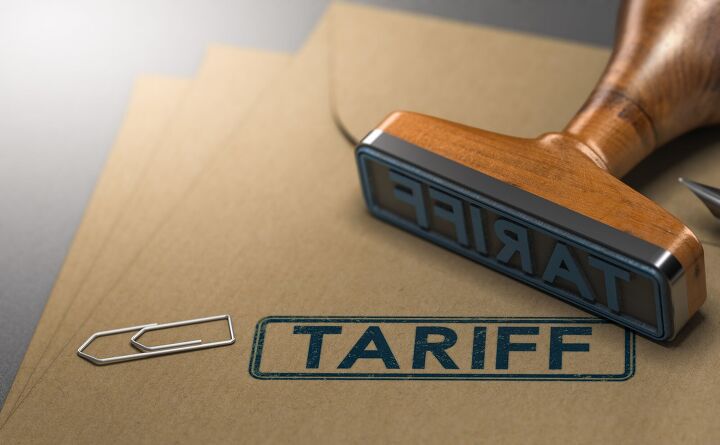
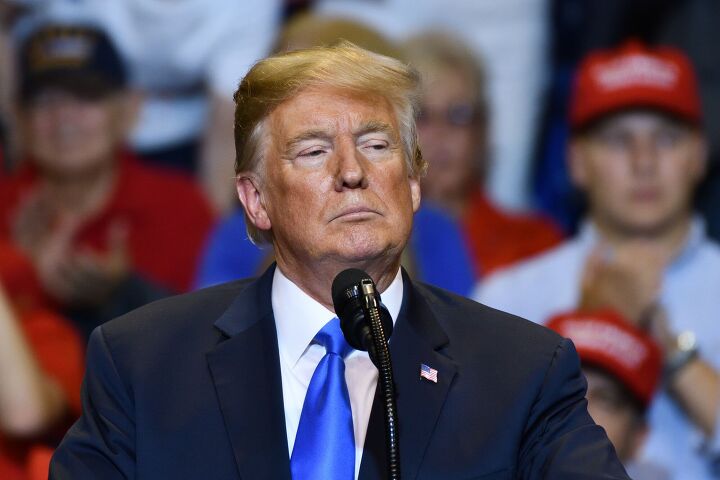
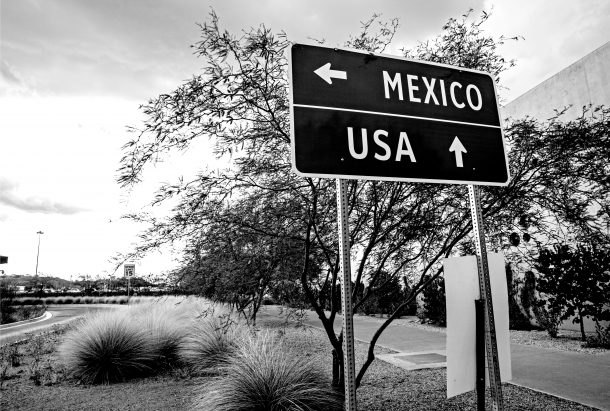
![Auto Lobbyists Attempt to Soften USMCA, Look to White House [UPDATED]](https://cdn-fastly.thetruthaboutcars.com/media/2022/07/19/9146752/white-house-invites-auto-execs-to-endorse-build-back-better.jpg?size=720x845&nocrop=1)
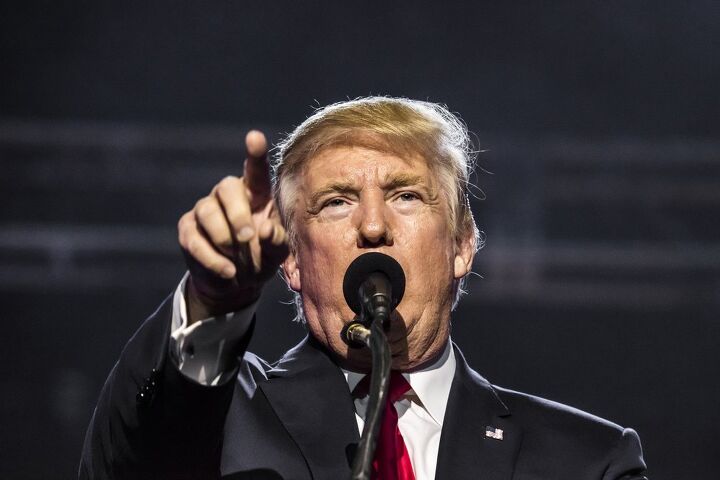
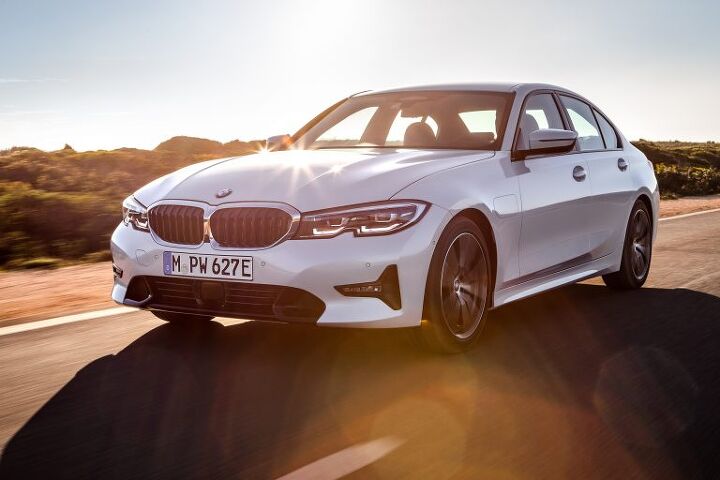
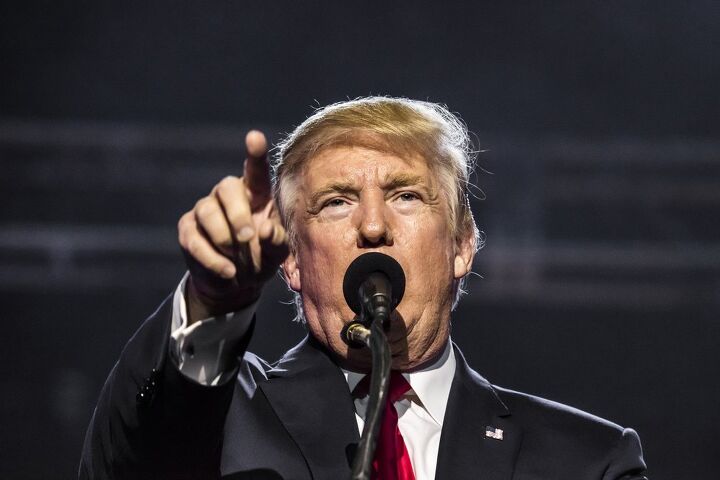

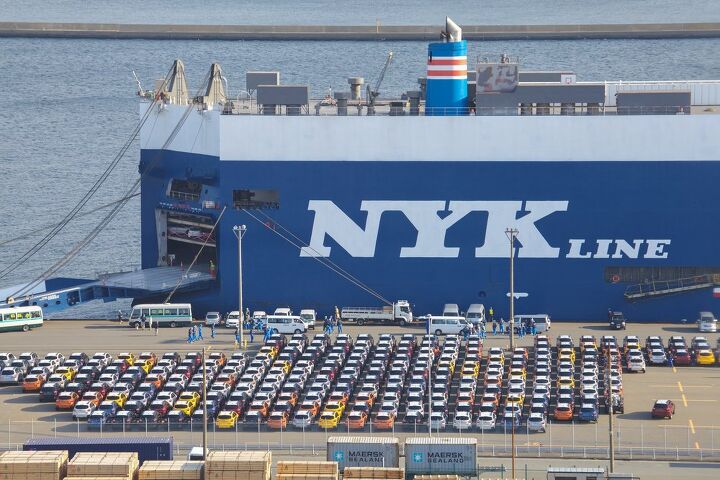
















Recent Comments